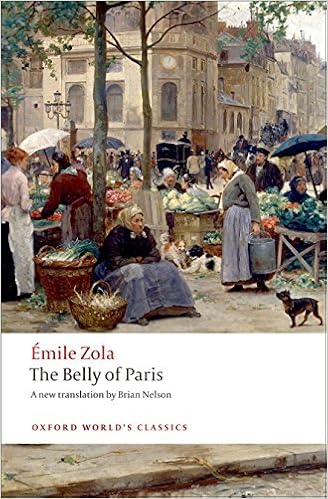
Zola at his best
Florent Quenu “espoused an ideal of pure virtue and sought refuge in a world of absolute truth and justice” and “became a republican, entering the realm of republican ideals as girls with broken hearts enter a convent; and unable to find a republic where sufficient peace and kindness prevailed to soothe his troubled mind, he created one of his own.” His delusional, Christ-like (his brother being his only disciple) naiveté feeds and nurtures the petty intrigue of the families who inhabit the Parisian food market, Les Halles. The result is one of Zola’s more masterful stories filled with intricate subplots that cause the reader to have ever-changing allegiances and impressions about the characters.
Zola was a master of descriptive writing. In The Belly of Paris he creates scenes that the reader can see, feel, taste and, most impressively, smell the market, all of which are integral to the story. As in many of his stories, hypocritical, vicious gossip does much to drive the narrative. The highlight in this novel is a scene in which Zola intertwines the voices of the women at the market with the stench of the cheeses surrounding them as their chattering sets off the events that lead to the inevitable conclusion. As the “great explosion of smells“ combined, “The stench rose and spread, no longer a collection of individual smells, but a huge, sickening mixture. It seemed for a moment that it was the vile words of Madame Lecœur and Mademoiselle Saget that had produced this dreadful odour.”
Zola was a master of descriptive writing. In The Belly of Paris he creates scenes that the reader can see, feel, taste and, most impressively, smell the market, all of which are integral to the story. As in many of his stories, hypocritical, vicious gossip does much to drive the narrative. The highlight in this novel is a scene in which Zola intertwines the voices of the women at the market with the stench of the cheeses surrounding them as their chattering sets off the events that lead to the inevitable conclusion. As the “great explosion of smells“ combined, “The stench rose and spread, no longer a collection of individual smells, but a huge, sickening mixture. It seemed for a moment that it was the vile words of Madame Lecœur and Mademoiselle Saget that had produced this dreadful odour.”
No comments:
Post a Comment